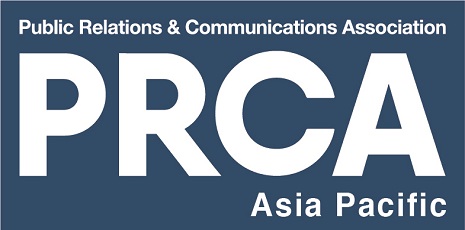Author: Thanzyl Thajudeen
Mark & Comm Ltd | Founder
The world went onto this decade with some unprecedented events that will continue to challenge the status quo, and this year is no different. With dramatic shifts in channels, inexplainable social phenomena, and rising concerns of a global recession lingering on the corner, 2023 and the years to come will be one of the most challenging periods that communication professionals will have to face. On the flip side, one’s survival kit and the way to cut through all of this is to be embracing rather positive and proactive opportunities. This would mean the dire need to upskill and reskill than ever, and more than anything, to build in resilience, creativity, relevancy, and be more of active listeners, storytellers, reputation managers and counselors, social campaigners, and agility experts.
Purposeful communications will matter
People want to buy from or support brands whose values are similar to theirs, and the focus will be to do everything that is on mission- and value-based storytelling. Diversity, equity, and inclusion (DE&I) and Environmental, social, and governance (ESG) initiatives are crucial than ever, and these priorities suggest that PR professionals will have to counsel with those leading such initiatives and explore on possibilities of communicating them with the wider audiences, including those internally. And most importantly, it’s firstly about walking the talk – putting such values into action and being accountable – and then doing various proactive PR rather than just talking the talk. Communicate with a purpose and not blindfolded. This is the very same with employees. Internal communications will continue to play an important role, and PR will need to find ways to merge with those external.
Being responsible is the expected norm today, and the same should be reflected in all communications. Holding yourself accountable for the messaging and impact it has on people and society is a value one must inculcate from the inner self. PR practitioners should educate clients on such intentions and promote such values within the industry.
Simplifying messaging will be the new creative
Lengthy content doesn’t work anymore as attention spans are only getting shorter, pushing brands to keep it short, punchy, and of course, relevant to anyone who comes across it. Finding ways in how to simplify the various messaging strategies with the right tone and style, ensuring that its conveyed and perceived within what’s intended. This will be an area that is often overlooked by many, but single-handedly one that may make or break PR. It is also not about quantity but rather the exclusivity. Cut out the passive voice, be clear and concise, use the 4Cs model, relate to your audiences, and most importantly, keep asking questions from yourself regarding the messaging.
Shifts in media outlets will continue
PR is moving to digital, and this is something that has long happened. But the entire social media landscape will see shifts like traditional media has. With various new platforms, content mediums and preferences spurring up every day, there should never be one such channel that PR relies on. This is an area that requires a constant lookout for, requiring practitioners to diversify their outreach and connections. On contrary, brands will increasingly prefer Influencer marketing which is proven to be far more effective than other forms. Media outlets will also witness increased contributory articles as journalists and editors leave the newsroom to be freelancers. Mass pitching will fade away, requiring PR to pitch in more tailored exclusives. Quantifying media impact will move from just the regular reads, likes or engagement to overall brand sentiments and emotions. Owned media will be more crucial for brands and Web 3.0 will contribute significantly, enabling more direct interactions between PR practitioners, brands and consumers.
Flexibility, agility and empathy will be important
PR will have to adapt more frequently to sudden changes in its direction, and practitioners should be ready with many plans proactively than reactively. Brainstorming with the team and bringing together their rich and diverse perspectives and ideas are important. This also doesn’t mean long meetings, but instead have shorter frequent ones. In other words, build agility into your PR allowing more flexibility and openness to explore and iterate. The ability to prioritize swiftly and effectively and adapt to it instantly gives a competitive advantage. Move fast and stay focused. Manage project dependencies and work closely with others. Psychological wellbeing among PR practitioners will continue to be a key highlight in the industry. With the many uncertainties and constant changes in the environment and business decisions, agility is the way to future-proof your PR. On the other end, empathize with the brand, that is to dive deep and drill into knowing the root causes, solutions and opportunities as to what impact and influences their audiences.
Reputation managers and counselors will thrive
The approach to PR will shift from delivering fragmented or narrow solutions in the disguise of the word ‘integrated’, to being a more trusted and reliable partner and counselor to the brand or organization. It is crucial to always remind and reinstate that PR is all about stakeholder relationships, and that it is more about managing and sustaining the reputation instead of just focusing on branding or image in silos. This will mean that PR practitioners should know in-depth and counsel with clients on their corporate character, identity and image considering all internal and external factors and take a proactive stance in managing the entire reputation management spectrum. Agencies and in-house professionals will need reskilling or upskilling, and importantly, to shift their mindsets.
Thanzyl Thajudeen is a Member of the PR and Communications Council 2023 of the Public Relations & Communications Association (PRCA), a Member of PRCA Asia Pacific Regional Board and a Member of the Chartered Institute of Public Relations (CIPR). He is also the founder of Mark & Comm Ltd, a reputation, responsible marketing, and communications outfit.

